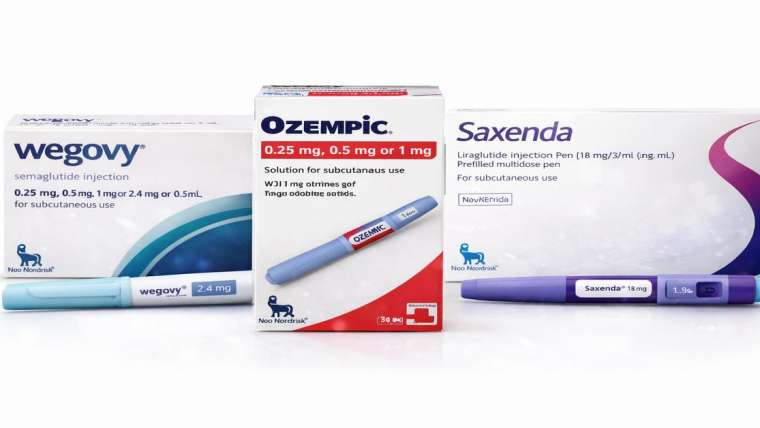
Does Ozempic Reduce Cancer Risk? What Family Physicians Need to Know
Does Ozempic Reduce Cancer Risk? This question has become quite a popular one lately.
Bottom Line Up Front: Recent large-scale studies suggest that patients taking semaglutide (Ozempic/Wegovy) show a 19-39% reduction in risk for multiple obesity-related cancers, with the strongest evidence for gastrointestinal cancers. However, thyroid cancer concerns from animal studies warrant careful patient selection.
The GLP-1 receptor agonist semaglutide — better known by its brand names Ozempic and Wegovy — has transformed diabetes and obesity management in recent years. But emerging research suggests these medications may offer an unexpected bonus: significant cancer risk reduction. As family physicians, understanding both the promise and limitations of this data is crucial for patient counseling.
The Cancer Prevention Evidence
Major Study Findings
The most compelling evidence comes from a 2024 JAMA Network Open study involving over 1.6 million patients with type 2 diabetes. Researchers found that patients taking GLP-1 receptor agonists had reduced risk for 10 out of 13 obesity-associated cancers compared to those taking insulin:
Cancers with Significant Risk Reduction:
- Gallbladder cancer (65% risk reduction)
- Pancreatic cancer (59% risk reduction)
- Colorectal cancer (46% risk reduction)
- Esophageal cancer (reduced risk)
- Endometrial cancer (reduced risk)
- Kidney, liver, and ovarian cancers (reduced risk)
- Multiple myeloma and meningioma (reduced risk)
Impressive Real-World Impact
Perhaps most striking were findings presented at the 2024 American Society of Clinical Oncology (ASCO) meeting. Among patients taking GLP-1 medications, cancer risk dropped by 39%—one of the most significant risk reductions ever documented in cancer prevention research.
The Obesity-Cancer Connection
Understanding why these drugs might prevent cancer requires recognizing obesity’s role as a major cancer driver. Obesity is linked to at least 13 types of cancer, including colorectal, post-menopausal breast, endometrial, liver, and several blood cancers.
The mechanisms likely include:
- Chronic inflammation from excess adipose tissue
- Hormonal imbalances (particularly estrogen and insulin)
- Immune system dysfunction
- Cellular stress and DNA damage
By addressing obesity, GLP-1 agonists may interrupt these cancer-promoting pathways.
Beyond Weight Loss: Direct Anti-Cancer Effects
Intriguingly, studies suggest semaglutide’s cancer-protective effects aren’t solely dependent on weight loss. Research indicates these medications may:
- Enhance immune function, particularly natural killer (NK) cells that destroy cancer cells
- Reduce chronic inflammation independent of weight changes
- Improve metabolic health in ways that lower cancer risk
- Modulate cellular pathways involved in tumor development
The Thyroid Cancer Concern
Despite the encouraging cancer prevention data, there’s an important caveat: thyroid cancer risk. The FDA requires a black box warning for all semaglutide products due to animal studies showing increased thyroid C-cell tumors in rodents.
What We Know:
- Animal studies: Clear increased risk of medullary thyroid cancer in mice and rats
- Human studies: No definitive increased risk documented
- Real-world data: Thyroid cancer incidence in semaglutide users remains under 1%
Clinical Implications:
Avoid semaglutide in patients with:
- Personal history of medullary thyroid cancer
- Family history of medullary thyroid cancer
- Multiple endocrine neoplasia syndrome type 2 (MEN2)
Practical Clinical Considerations
Patient Selection for Cancer Risk Reduction
Consider discussing GLP-1 agonists with patients who have:
- High obesity-related cancer risk (strong family history, previous cancer)
- Multiple metabolic risk factors (diabetes, metabolic syndrome)
- Completed cancer treatment seeking recurrence prevention
Counseling Points
Emphasize to patients:
- Cancer risk reduction is a potential benefit, not a guaranteed outcome
- Weight loss and lifestyle changes remain fundamental to cancer prevention
- These medications are adjuncts to, not replacements for, proven cancer prevention strategies
- Long-term safety data is still evolving
Monitoring Recommendations
For patients on semaglutide:
- Baseline thyroid examination and family history review
- Monitor for thyroid symptoms: neck mass, hoarseness, difficulty swallowing
- Regular follow-up for medication tolerance and efficacy
- Continue standard cancer screening protocols
The Bigger Picture
While the cancer prevention data is encouraging, it’s important to maintain perspective. As one expert noted, “Unhealthy weight is the smoking of our generation.” GLP-1 agonists may be powerful tools in our cancer prevention arsenal, but they work best as part of comprehensive lifestyle interventions.
Looking Ahead
Research into GLP-1 agonists and cancer prevention is accelerating, with studies examining:
- Optimal dosing for cancer risk reduction
- Duration of treatment needed for benefit
- Specific patient populations most likely to benefit
- Combination approaches with other preventive strategies
Key Takeaways for Practice
- Strong evidence suggests GLP-1 agonists reduce risk for multiple obesity-related cancers
- Greatest benefits appear to be for gastrointestinal cancers
- Thyroid cancer screening remains important for patient safety
- Cancer prevention represents an additional reason to consider these medications in appropriate patients
- Lifestyle interventions remain the foundation of cancer prevention
As we await longer-term studies, the current evidence suggests that for many patients struggling with obesity and diabetes, GLP-1 receptor agonists may offer dual benefits: improved metabolic health today and reduced cancer risk tomorrow.
About the Author: Dr. Hina Zaman is a board-certified family medicine physician specializing in weight management, metabolic health, and other medical conditions. She helps patients achieve their health goals through comprehensive, evidence-based treatment plans at her practice in Murphy, Texas (near Dallas, TX).
Contact Information:
Family Care USA, PLLC.
Address: 318 WFM 544, Suite A2, Murphy, TX 75094
Phone: +1 469-782-0165
Useful Resources:
Professional Guidelines & Research
- American Diabetes Association (ADA) Standards of Care: ADA Professional Guidelines
- FDA Drug Safety Communication – GLP-1 Agonists: FDA Safety Information
- JAMA Network Open Study – GLP-1 and Cancer Risk: Original Research Article
- American Society of Clinical Oncology (ASCO): Cancer Prevention Guidelines
Patient Education Resources
- American Cancer Society – Obesity and Cancer Risk: ACS Obesity Information
- National Institute of Diabetes and Digestive and Kidney Diseases: NIDDK GLP-1 Information
- Novo Nordisk Patient Resources: Official Ozempic Information
- CDC Diabetes Prevention Program: CDC DPP Resources
Clinical Decision Support
- UpToDate – GLP-1 Receptor Agonists: Clinical Decision Support
- Prescriber’s Digital Reference (PDR): Drug Information Database
- American Association of Clinical Endocrinologists: AACE Clinical Guidelines
Cancer Screening Guidelines
- U.S. Preventive Services Task Force: USPSTF Screening Recommendations
- National Comprehensive Cancer Network: NCCN Guidelines
This article is for educational purposes and should not replace individualized patient assessment. Always consider patient-specific factors when making treatment decisions.



